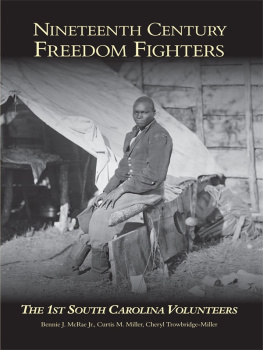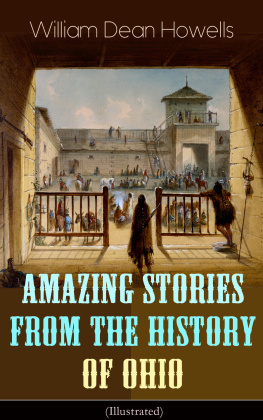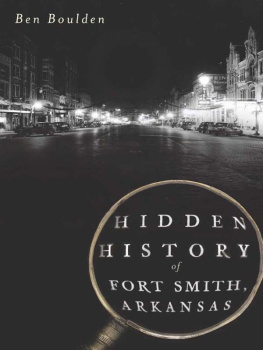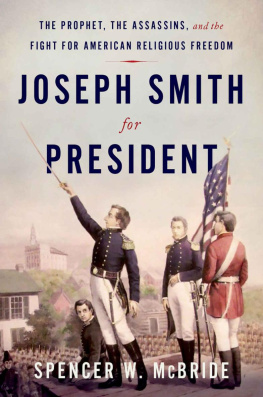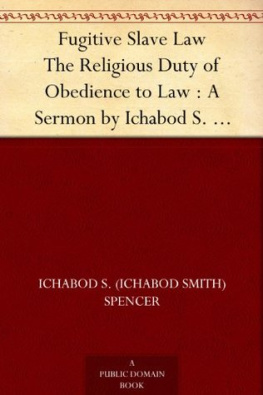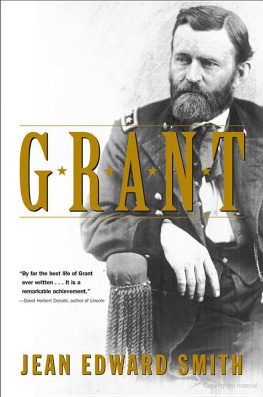The Lost President

SERIES EDITORS
Stephen Berry
University of Georgia
Amy Murrell Taylor
University of Kentucky
ADVISORY BOARD
Edward L. Ayers
University of Richmond
Catherine Clinton
University of Texas at San Antonio
J. Matthew Gallman
University of Florida
Elizabeth Leonard
Colby College
James Marten
Marquette University
Scott Nelson
College of William & Mary
Daniel E. Sutherland
University of Arkansas
Elizabeth Varon
University of Virginia
The Lost President
A. D. Smith and the Hidden History of Radical Democracy in Civil War America
RUTH DUNLEY

2019 by the University of Georgia Press
Athens, Georgia 30602
www.ugapress.org
All rights reserved
Set in 10.5/13 Adobe Caslon Pro by Graphic Composition, Inc. Bogart, GA
Most University of Georgia Press titles are available from popular e-book vendors.
Printed digitally
Library of Congress Cataloging-in-Publication Data
Names: Dunley, Ruth, 1972 author.
Title: The lost president : A.D. Smith and the hidden history of radical democracy in Civil War America / Ruth Dunley.
Description: Athens, GA : The University of Georgia Press, [2019] | Series: UnCivil wars | Includes bibliographical references and index.
Identifiers: LCCN 2018034315 | ISBN 9780820354545 (hardback : alk. paper)
Subjects: LCSH: Smith, A. D. (Abram Daniel), 18111865. | United StatesPolitics and government19th century. | RepublicanismUnited StatesHistory19th century. | PresidentsCanadaBiography. | CanadaHistoryRebellion, 18371838Biography. | Hunters Lodges (Organization)Biography. | Cleveland (Ohio)Politics and government19th century. | JudgesWisconsinBiography. | United States. Internal Revenue ServiceOfficials and employeesBiography. | Beaufort (S.C.)Politics and government19th century.
Classification: LCC E340.S53 D86 2019 | DDC 320.973/09034dc23 LC record available at https://lccn.loc.gov/2018034315
Fellow citizens, be not deceived; your rights are now placed in your own hands. Let not your grasp loosen for a moment, that your enemies may snatch them away. Be not inactive. The foe is aroused to his most desperate energies. He is putting forth all his strength and subtlety. The power of self-government is now with you. Let it not depart, lest it depart forever. Come up to the contest with the shout and strength of freemen who know their rights and dare maintain them.
A. D. SMITH, February 24, 1847
CONTENTS
ACKNOWLEDGMENTS
It has been a long road to the completion of this book. When editor Stephen Berry first approached me about it, I was nearing a maternity leave. That baby is now well into grade school.
The pace of my progress was so glacial that I suspect it led many to believe the book was a figment of my imagination. For those who trusted that it did indeed exist, who helped me, supported me, and made it possible for me to complete this workand who made it impossible for me to put it asidethank you.
I pursued doctoral studies in history at the suggestion of Professor Klaus Pohle, my graduate adviser in journalism. I will always be grateful for his friendship, encouragement, and wisdom.
My application to the University of Ottawa landed in the inbox of Professor Donald F. Davis, who, unlike some, was willing to forgive my background as a journalist and teach me to become a historian. He introduced me to A. D. Smith and urged me to tell his story. Professor Davis was my biggest cheerleader and harshest criticI thank him for being both. I also thank the other Ottawa professors who encouraged my work on this book and my pursuit of the discipline: Jacques Barbier, Richard Connors, Beatrice Craig, and Chad Gaffield.
This work would not have been possible without the financial support of Fulbright Canada. During my time as a visiting scholar at the College of William and Mary, I benefited from the advice and mentorship of Professors Cindy Hahamovitch, Lu Ann Homza, Scott Nelson, Ron Schechter, Carol Sheriff, Jim Whittenburg, and especially Chandos Michael Brown. They offered ideas and encouragement and welcomed me into their classrooms and homes. I am particularly grateful to Professor Sheriff for supporting my Fulbright application from the beginning.
I am also indebted to those academics and independent historians who were not affiliated with my schools but nonetheless took time to help me or discuss issues examined in this book: Robert Baker, David Blight, Andrew Bonthius, John Carter, Jane Errington, Paul Finkelman, William Freehling, Donald Graves, Joseph Ranney, Tatiana van Riemsdijk, Michael Wayne, Robert Wheeler, and Stephen R. Wise. The late Michael Fellman played a critical role in helping me revise this biography and introduced A. D. Smith to the University of Georgia Press.
There I owe much to the efforts of editors Stephen Berry, Jon Davies, Ellen Goldlust, Mick Gusinde-Duffy, and Amy Murrell Taylor. When Professor Berry initially approached me about this book, I am certain he did not expect it to become an eight-year conversation. As someone who lacked the backing of an academic institution and had to maintain a day job, I will always be grateful that he held me to historians deadlines and not journalists deadlinesand even then, he was more generous than I could have hoped.
I also thank many archivists, curators, and librarians across North America, especially Michael Ruffing, formerly of the Cleveland Public Library; Jane de Broux and John Nondorf, formerly of the Wisconsin Historical Society; Anne Mallek, formerly of the Gamble House; Catherine Butler of Library and Archives Canada; Grace Morris Cordial at the Beaufort County Library; Eva Garcelon-Hart of the Henry Sheldon Museum; Kevin Abing of the Milwaukee County Historical Society; Ann Scheid of the Greene and Greene Archives of the University of Southern California; and Patricia Homer, my Upstate New York specialist.
Numerous friends in Canada and the United States helped me in more ways than I can mention. In particular, I am grateful to Jennifer Cox, Chris Lackner, Joanne Laucius, Augustine Meaher IV, Caroline ONeill, Tammy Elizabeth Renich, Robert Sibley, Tom Spears, and Laura Stemp. Not only did Reid J. Epstein and Kate Goodloe give me a place to stay in Milwaukee and Washington, but Reid was also my American sounding board and Wisconsin tour guide. Thanks, too, go to the members of the Ottawa Collaborative History Initiative, particularly Anthony Di Mascio, Adam Green, and Samy Khalid, under the direction of Professor Chad Gaffieldtheir insight helped shape my research and writing in the earliest days.
Although I contacted several of Smiths descendants, only Kathleen Candee of Wisconsin was able to shed any light on their ancestor. I thank her for providing research leads, encouragement, and a willingness to sit down with a stranger to chat about the mysteries of Smith at a Milwaukee pub on St. Patricks Day. (Im glad we survived the brawl that broke out in front of us.) I also thank Smiths descendants in the Gamble family for their assistance in locating and sharing the only image of Mary Augusta Smith I have ever seen.
I will always be grateful for the ongoing support of Scott Anderson, the former editor in chief of the Ottawa Citizen. It was with some trepidation that I approached him to seek permission to work on a doctorate while simultaneously trying to work full time at the newspaper. Rather than dissuade me, he offered unconditional support. When I subsequently approached him about taking a years leave of absence to accept the Fulbright, he fulfilled that promise. I was lucky to be working for Scott then and even luckier to work for him again years later.
Next page

